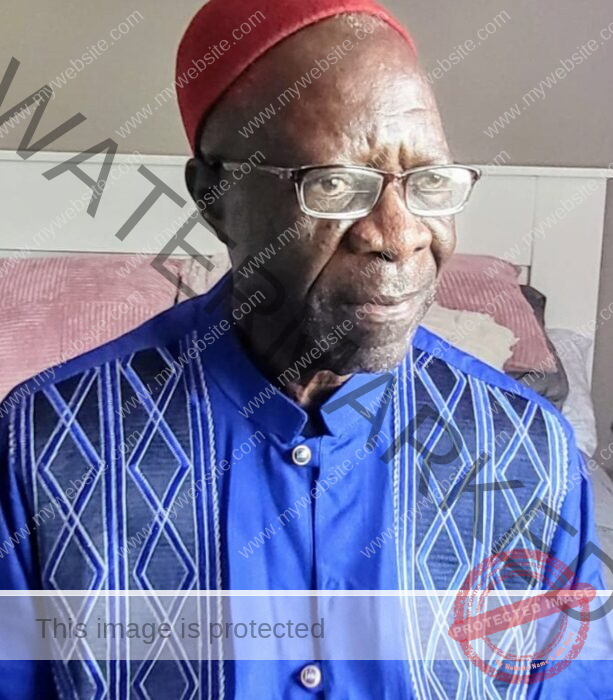Barrister Timothy Mbeseha The independentist legal columnist
By Barrister Timothy Mbeseha
Douala–Yaoundé–Buea, July 2025 — More than six decades after the fateful events of 1 October 1961, a growing body of legal scholarship continues to challenge the legitimacy of the union between Southern Cameroons and the Republic of Cameroon. At the center of this renewed interest is one explosive truth: the people of Southern Cameroons were never given the chance to become fully independent, and what followed was a systematic breach of international trust.
In this legal exposé, Barrister Timothy Mbeseha lays bare the entire trajectory — from the League of Nations mandates to the UN Trusteeship and the eventual absorption of Southern Cameroons into French-speaking Cameroon. What he reveals is chilling: a calculated dismantling of a people’s right to self-determination in favour of imperial convenience and geopolitical compromise.
A Territory with Legal Standing
After Germany’s defeat in World War I, its colonial holdings — including Kamerun — were divided between France and Britain. The western slice, called British Cameroons, was administered separately as Northern and Southern Cameroons, even though both were part of the same legal trust territory.
In 1946, the United Nations officially made Britain the Administering Authority of British Cameroons under a Trusteeship Agreement. The mandate? To prepare the territory for self-government or independence, according to Article 76 of the UN Charter.
By 1954, Southern Cameroons had achieved full internal self-government, with its own elected House of Assembly and Executive Council. In legal terms, it had reached the threshold for full statehood.
A Misleading Choice: “Independence by Joining”
In 1959, under pressure from Britain and France, the UN General Assembly passed Resolution 1352 calling for a plebiscite. But here’s the catch: the people of Southern Cameroons were never offered the option to become an independent nation.
Instead, the only choices were:
Join Nigeria
Join the Republic of Cameroon
This controversial formula — “independence by joining” — had no legal basis in the UN Charter. Nevertheless, the plebiscite went forward on 11 February 1961. Southern Cameroons voted to join French Cameroon — but under conditions never agreed upon or negotiated in good faith.
No Treaty, No Talks, No Consent
Resolution 1608 (passed in April 1961) urged the UK, the elected government of Southern Cameroons, and the Republic of Cameroon to negotiate the terms of union before the union date of 1 October 1961.
That never happened.
Instead, President Ahmadou Ahidjo of Cameroon invited Southern Cameroons leaders to a so-called “conference” in Foumban — without UN oversight. The Cameroonian side came with a ready-made federal constitution. No negotiations. No agreement. Just a political ambush dressed as diplomacy.
The Disappearing Federation
What followed was a slow but deliberate erasure of Southern Cameroons’ distinct identity:
1961: A unilateral Federal Constitution was imposed by Cameroon.
1972: A referendum (widely seen as rigged) dissolved the federation and created a centralized unitary state — the United Republic of Cameroon.
1984: The country was renamed Republic of Cameroon, the exact name it had before any supposed union. The message? The federation was dead. Southern Cameroons no longer existed.
A Case of International Betrayal
What does international law say?
There was no treaty of union between the two territories.
The plebiscite denied Southern Cameroons the right to independence.
Cameroon rejected the UN resolution that mandated negotiations.
The federation was dismantled without any legal or constitutional justification.
According to Barrister Mbeseha, these facts render the so-called union void from the very beginning — null ab initio. Southern Cameroons remains a non-self-governing territory with an unresolved legal status.
A Right That Never Dies
Today, under international law — including Articles 1 and 55 of the UN Charter and UNGA Resolution 1514 on decolonization — the people of Southern Cameroons (now popularly called Ambazonia) still have the right to external self-determination.
This is not just a political slogan. It is a legal right that can be pursued in international courts and forums like the International Court of Justice, the African Union, and the United Nations.
The Verdict of History
From the mislabelled plebiscite to the constitutional bait-and-switch, the story of Southern Cameroons is not one of peaceful union — but of forced assimilation, legal manipulation, and international betrayal.
As calls for a peaceful resolution mount, one fact stands firm in international law: you cannot erase a people by paperwork, propaganda, or power plays.
The people of Ambazonia were never allowed to choose independence. That right is still alive — and it’s not going away.
Barrister Timothy Mbeseha
Legal Scholar and Advocate for the Rights of Southern Cameroons
Douala–Yaoundé–Buea, July 2025

